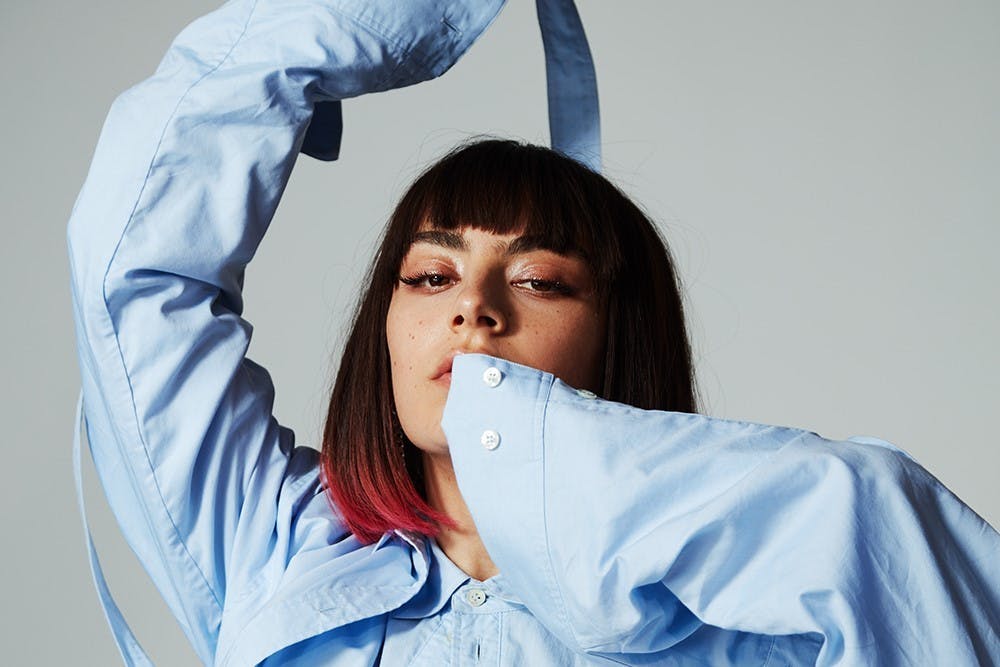Charli XCX’s career is like a tightrope walk. She's constantly balancing between the mainstream pop world (through which she started her career) and the underground She cut her teeth and made a name for herself as an up–and–coming talent with Icona Pop’s 2012 hit “I Love It.” Charlotte Aitchison (XCX's real name) released her first mixtape, True Romance, in 2013. She then followed up in 2014 with another hit, “Boom Clap,” as the lead single of her major label debut studio effort Sucker.
Aitchison took a left turn back in with the release of her landmark pop–electronic Vroom Vroom EP in 2016, entirely produced by the innovative producer SOPHIE. From there, Aitchison attached herself to the underground British label PC Music, enlisting its co–founder A.G. Cook as the executive producer of her next two mixtapes, Number 1 Angel and Pop 2, and her long-awaited third album, Charli, which came out on Sep. 13. Charli, like many good self–titled albums, functions as a self–portrait.
Aitchison has always walked the fine line between mainstream and underground pop. Here, this dichotomy is reflected in the fact that out of the 15 tracks on Charli, only two (“1999” and “Blame It on Your Love”) stand out as radio–friendly hits.
The other 13, for the most part, are avant–pop, an experimental genre which made her last mixtape, Pop 2, a favorite among both critics and fans. “Click” and “Shake It” most clearly fit this style, since both songs feature collaborators who appeared on her previous mixtape and use the same abrasive production style. “2099” is equally reminiscent of Pop 2, with its similarly futuristic backing track.
“Next Level Charli,” “Gone,” “Cross You Out,” and “Silver Cross” also have similarities to Pop 2, but none go as far into the fringes of pop music as the other aforementioned songs do. “Warm,” “Thoughts,” and “February 2017” are interesting updates on the formula as well; they feel like daytime versions of her mixtapes' late–night shenanigans.
The remaining songs (“White Mercedes,” “I Don’t Wanna Know,” and “Official”) sound like odes to Charli’s True Romance and Sucker days, full of 80’s pastiche and saccharine synths. You would think that with all this retrospection (and introspection) that Charli would just feel like a rehash of her former hits, but the album—taken as a whole—still feels entirely new and fresh.
Even “Shake It,” which features the same collaborators as “I Got It” from Pop 2 (with Big Freedia added in as well), feels more like a companion or sequel to “I Got It” than merely an attempt to conjure up the same old magic.
Charli expands Aitchison’s relentlessly hedonistic universe, sharpening the edges in some places, while improving upon winning formulas in others. In an Instagram post marking the release of the album, executive producer A.G. Cook posted an equation, "(True Romance + Sucker) x (Number 1 Angel + Pop 2) = Charli," showing that the latest project is both an amalgamation and a continuation of the albums and mixtapes within Charli's discography. And it's hard to see an album like Charli as anything but that—an evolved form of her previous works that stands as a career–defining masterpiece.

